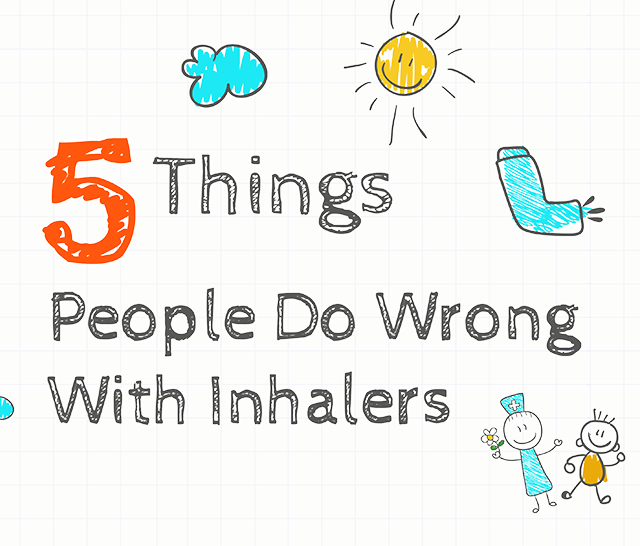
What To Do In An Asthma Attack
The below content is derived from research done using sources available on the internet. Safey Medical Devices Inc and its subsidiaries do not take any responsibility for the accuracy of the content. No medical decision should be taken on the basis of below content without consulting with your Medical Practitioner.
Experiencing an asthma attack can be a scary time. It’s important to spot the signs of one, and if you think you’re having an asthma attack, you should use your reliever inhaler, try to remain calm, sit upright, and take slow, controlled breaths.
Every 10 seconds someone in the UK will suffer from a potentially life-threatening ASTHMA ATTACK.
Asthma attacks are also responsible for three deaths per day, but according to Asthma UK two thirds of these deaths can be prevented.
And for some? They suffer with asthma so severe that current treatments and medication just don’t work.
If you or your child suffers with asthma, you are most likely aware of the risks associated with the condition and have potentially experienced an attack of your own.
But you may be surprised to learn that every 8 minutes, someone in the UK is admitted to hospital due to this.
So, what can you do in this situation? Aside from being terrified and panicked by the onset of a dreaded attack, there are steps you can take to help manage this.
Read on to find out just what you can do in the unwelcomed event of an asthma attack.
Symptoms
Before you look at what steps to take should you run into difficulty, it’s important to be aware of the symptoms.
After a trigger causes symptoms to worsen, an asthma attack can take place.
Symptoms the person suffering from such an attack may not even know that it is happening.
This may be because an asthma attack can take place over the space of a few days.
The main symptoms are:
Coughing
Wheezing
Chest pain or tightness
Shortness of Breath or gasping
Flushed, pale or bluish skin
Short bursts of speech
Other signs that someone is experiencing an asthma attack could be:
- If their reliever inhaler is not helping the situation, or the person suffering with an attack finds their inhaler not as effective for less than 4 hours.
- breathlessness makes it difficult to eat or sleep
- their breathing is getting faster or they feel like they cannot catch their breath
What To Do When An Asthma Attack Is Taking Place?
- STOP whatever activity you are doing
- If there is someone else with you or someone close to you, try to make them aware of what is going and make sure they do not leave you alone
- If you have an asthma action plan, follow it.
- If you have your rescue inhaler with you, use this immediately.
- Sit up straight and try to remain calm. It is important that you do not lie down.
Take one puff of your reliever or rescue inhaler every 30 to 60 seconds.
Try not to exceed a maximum of 10 puffs.
- If symptoms get worse or do not improve after 10 puffs, seek emergency medical care.
- If it takes longer than 15 minutes for help to arrive, repeat step 2.
Asthma attacks can be potentially life-threatening. Seek help if symptoms do not get better.
What If You Are Caught Without Your Inhaler?
If you find yourself suffering from an attack, it can be incredibly scary to find that don’t have your inhaler with you.
Associate Professor Loo Chian Min, Head and Senior Consultant at the Department of Respiratory and Critical Care Medicine in Singapore General Hospital, states “Never, ever let up on your asthma medications even if you feel your condition has improved,”
Your life could very well depend on it.
However, If you cannot get to your inhaler in the midst of an attack,
there are things that you can do to help:
- STAY CALM
This may sound obvious but it’s ultra important. The more panicked you become, the more chance there is of your chest muscles becoming tight and constricted. It may also sound like the most difficult thing to do, but trying to stay calm can help to keep the chest from tightening further, and may make your breathing easier.
- LOOK AT THE TIME
Mild asthma attacks tend to last for around 5-10 minutes. In this case, it’s crucial if you can, to take a look at a clock or your watch and note the time.
⏲
Severe asthma attacks can last anywhere, from a couple of hours to days, to a week.
If your breathing has not resumed its normal pattern within 15 minutes, then you need to seek immediate medical attention.
- SIT UPRIGHT
In order to get your breathing back under control, sit upright.
Reclining or lying down can constrict your breathing further.
If you or the person in the midst of an asthma attack is outside or you’re considering moving them outside for some fresh air, be aware that cold air makes symptoms worse.
- LOOSEN TIGHT CLOTHING
Anything that can restrict your breathing needs to be looked at with urgent attention. This includes any tight fitting tops or trousers.
If you feel as though you cannot catch your breath, or it is worsening, loosen up your collar, belt or button.
Whatever it is that might be adding to your already compromised breathing.
- TAKE LONG, DEEP BREATHS
Breathe long, slow breathes in through your nose and out through your mouth.
This helps to slow down and gain back control over your breathing. This also helps to stop hyperventilation.
For an added helping hand, try counting slowly to five slowly on the inhale, an back from five as you exhale.
- ELIMINATE THE TRIGGER
Okay, so you may not be able to do that entirely. But it’s important to remove yourself from the trigger that could be responsible for your asthma attack. The majority of asthma sufferers tend to have more than one kind of asthma trigger.
Key triggers could be any one of the following :
Exercise
Envirnmental issues– such as allergens, air pollutions and cigarette smoke
Repiratory Infections
Weather– extremities such as windy or cold air
Chemicals– such as ammonia or sulphur dioxide
Gastroesophageal reflux disease (also known as GERD)
Stress
If you suffer from Allergic Asthma, the key triggers are:
Pollen Allergy
Mould Allergy
Dust Mite Allergy
Food Allergy
Drug Allergy
Pet Allergy
If your asthma attack is due to cigarette smoke or general air pollution, for example, get away from the trigger as soon as possible and go to an air-conditioned environment or any place with clean air.
- DRINK A HOT BEVERAGE
Studies show that hot caffeinated drinks like coffee can help to open up the airways slightly, providing relief for around 2 hours after the event.
- OIL?
If you are at home or have access to it, mustard oil has been suggested as one of the best emergency home remedies available for immediate asthma relief,
The type of mustard oil is important and is a very specific type of fatty oil containing isothiocyanates. This is made from pressing mustard seeds.
Mustard seed oil can help to relieve an asthma attack and assist in opening up the air passageways.
- Heat some mustard oil with a little camphor or salt
- Transfer it in a bowl and when it is comfortably warm, gently rub it on the chest and upper back and massage.
- Do this several times a day until the symptoms subside.
- SEEK EMERGENCY ASSISTANCE
If you are experiencing respiratory discomfort, and symptoms of coughing and wheezing, after a period of rest, seek immediate medical attention.
Check out this handy guide from Asthma UK if you’re not sure when you need to visit A&E.
It’s important to note that if your symptoms improve and 99 no longer becomes a necessity, you still need to make an urgent same-day appointment with your GP or asthma nurse.
You may also have been given some rescue prednisolone tablets to keep at home in the event of an asthma attack.
Take them as your GP or asthma nurse has recommended.
Usually this information can be found on your asthma action plan or on the written medication itself.









